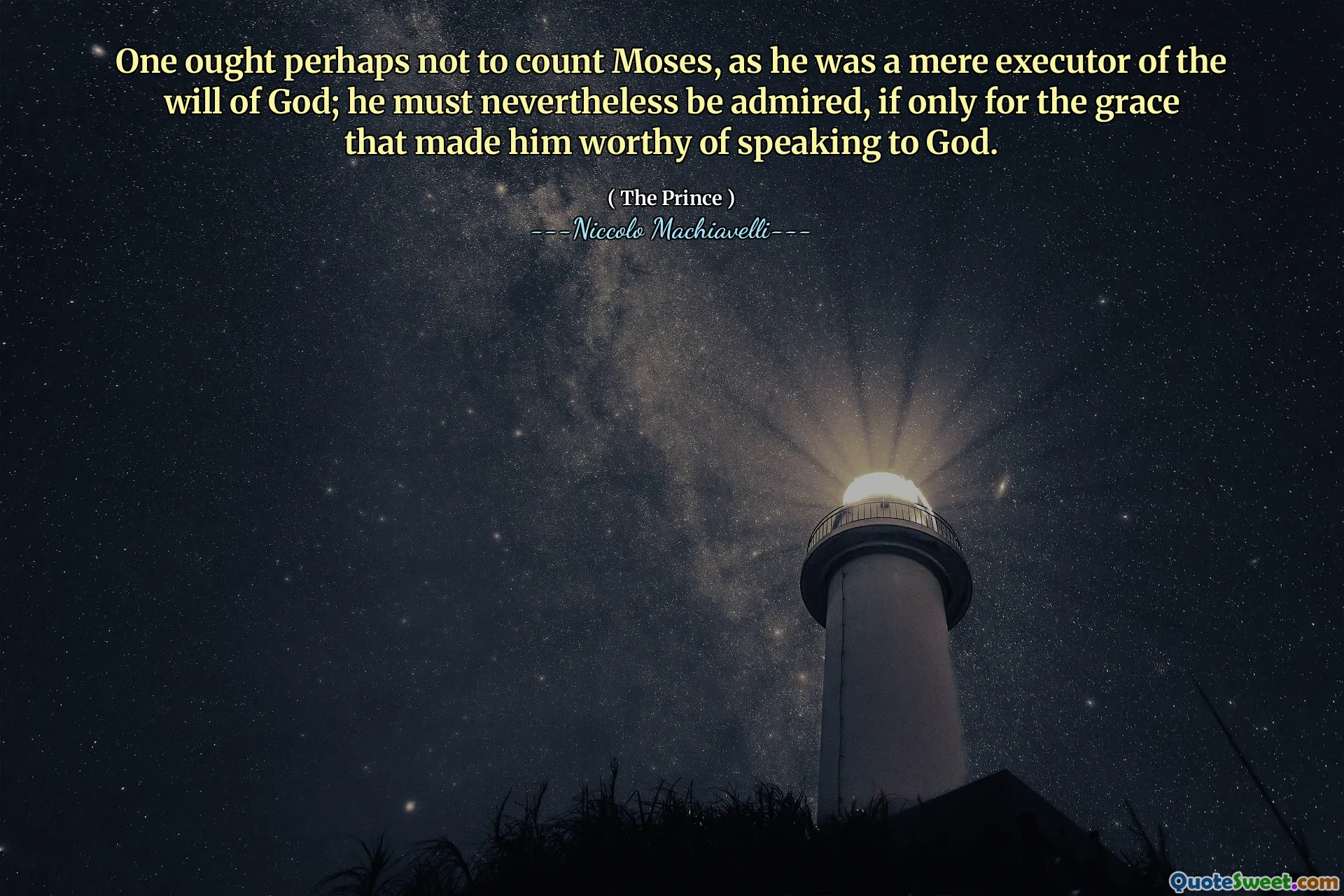
One ought perhaps not to count Moses, as he was a mere executor of the will of God; he must nevertheless be admired, if only for the grace that made him worthy of speaking to God.
The quote delves into the nature of leadership, divine influence, and human admiration. Moses, often regarded as a prophet and leader, is portrayed not solely as an autonomous agent but as someone who faithfully executed divine will. This perspective emphasizes the humility inherent in true service—recognizing that greatness can stem from obedience and dedication to a higher purpose rather than personal ambition. The admiration for Moses, despite his role as an executor, is rooted in the 'grace' that elevated him to a position where he could converse directly with God; it highlights that divine favor and moral qualities are worthy of admiration. Such reflections prompt us to consider the qualities we value in leaders and heroes: is it power, intelligence, or virtue? The quote subtly suggests that divine grace, humility, and fidelity are some of the highest virtues because they transcend mere accomplishment and point to a connection with the divine and moral integrity. It encourages humility in our own pursuits and respect for the moral qualities that enable individuals to serve a greater good. Moreover, it underscores that being used as an instrument of divine will does not diminish a person's moral stature—in fact, it can be a source of profound admiration. We often celebrate leaders for their decisive actions or accomplishments, but this quote reminds us that the moral and spiritual qualities guiding those actions are equally vital and deserving of admiration.











